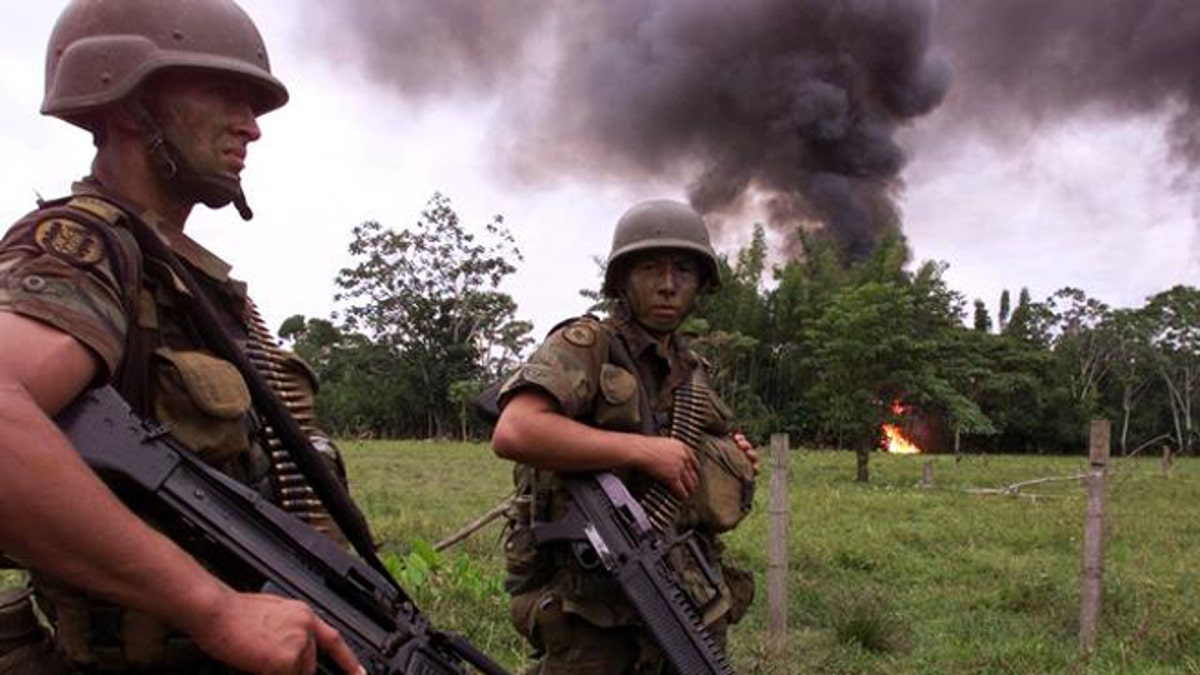
United States-funded flights in Colombia to spray coca fields were put on an indefinite hiatus after the shooting down of two duster planes and the death of the one of the American pilots.
A source told the Los Angeles Times that the U.S. Embassy in Bogotá has suspended spraying missions following the two incidents earlier this year. On September 27, one plane was brought down – killing the U.S. pilot, whose name has yet to be released – and on October 5. another crop-duster was shot out of the sky.
While the incidents were reported shortly after they occurred, it wasn't until last week that it was reported that the planes were allegedly brought down by the Revolutionary Armed Forces of Colombia (FARC). La Silla Vacía, a Colombian online news site, reported the rebel group’s involvement, but neither the U.S. State Department nor the American embassy in Bogotá has commented on the matter.
The Associated Press reported on the October incident, saying that there were two other Americans aboard the Dash 8 plane who were seriously injured in the pre-dawn crash.
Under contract with the U.S. Air Force, the crop-duster was a "prospector" aircraft, also carrying surveillance equipment and capable of being used to track speedboats and other vessels that smuggle cocaine north out of Colombia, said Jody Draves, spokeswoman for the U.S.-sponsored multinational task force in Key West, Florida (known as JIATF-South) that runs interdiction in region.
Draves said the plane had flown out of Panama and was operating in coordination with a Colombian surface vessel. It was , near the city of Capurgana, not far from the border with that Central American nation, when it was shot down.
The two injured Americans were rescued by Colombian soldiers and taken to a hospital in the capital, Bogotá.
"We express our sympathies to the families of the deceased, and are particularly saddened by the loss of a Panamanian Air National Guardsman," said Gen. John Kelly, commander of U.S. Southern Command. "We also want to thank the Colombians for their outstanding rescue and recovery efforts."
At least nine pilots have been killed in spraying missions since the U.S. began flights back in 1995. Along with gunfire, power lines and palm trees have also caused plane crashes.
The flights are part of Plan Colombia, the anti-drug and anti-terrorism aid program that has given Colombia more than $8 billion in military, humanitarian and institution-building funds in an effort to combat drug-traffickers and guerrilla groups who have moved into the drug trade.
The FARC, which asked its units to "cease fire and hostilities for 30 days" from December 15 in a message last week issued from Havana, where the group's leaders are currently in the middle of talks with representatives of the Colombian government.
President Juan Manuel Santos' government rejects the idea of any cease-fire until a peace deal has been signed.
Colombia has endured five decades of civil conflict that has left hundreds of thousands dead and displaced more than 4.5 million.
The FARC – Colombia's largest and oldest rebel group, which was established in 1964 – has 7,000 to 8,000 fighters.
The Associated Press contributed to this report.
Follow us on twitter.com/foxnewslatino
Like us at facebook.com/foxnewslatino
